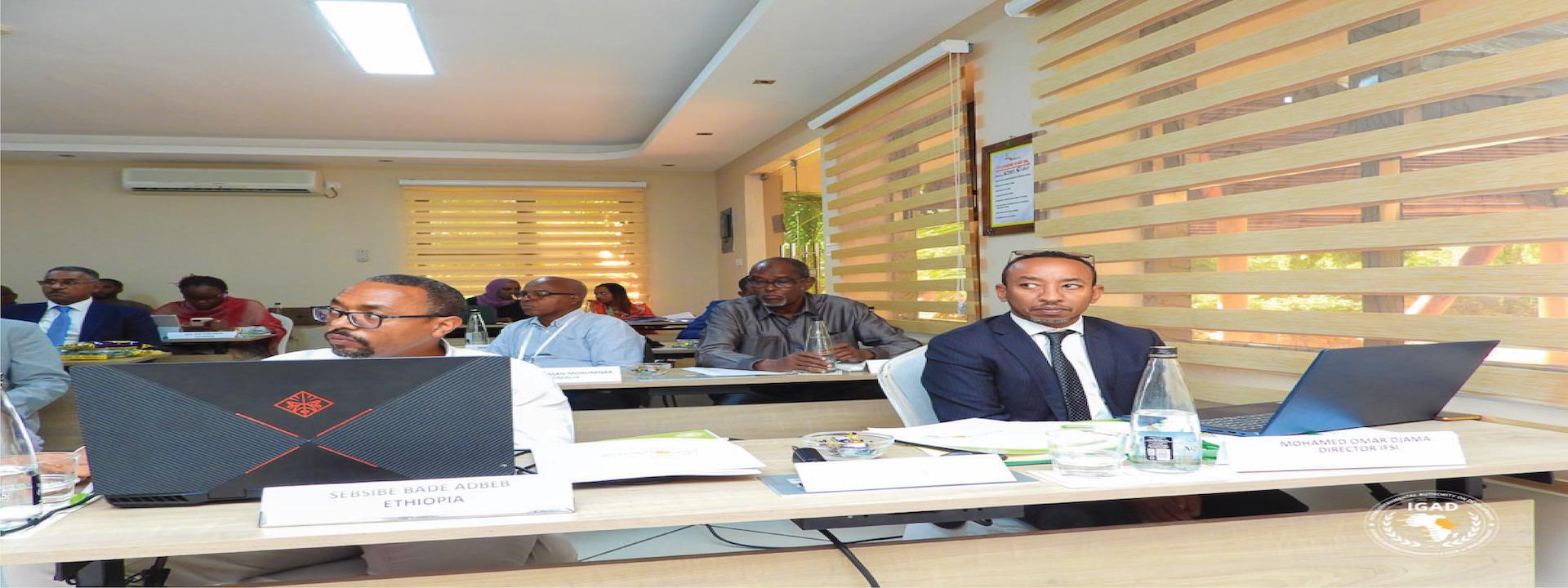June 20, 2023 (Mombasa, Kenya): the IGAD Foreign Service (IFSI) organized a two-day ‘Research paper development for training validation’ workshop from June 19th to 20th in the serene city of Mombasa.
The workshop was intended for IGAD Diplomatic academies, national experts and focal points of the Ministries of Foreign Affairs. It also brought together representatives from Ministries of Foreign Affairs from Djibouti, Ethiopia, Kenya, Somalia, South Sudan, Sudan, and Uganda.
A consultant was commissioned to develop a research case study that could guide the Institute to develop and strengthen its trainings. The consultant identified primary content aimed at assisting the IFSI to develop and strengthen its trainings, existing gaps in the training and areas of strengthening in order to build the capacity of member states in making quality decisions, teamwork, gender equality, communication and interpersonal skills. The purpose of the validation workshop was to allow stakeholders to assess the research case study and validate it. This workshop was a useful forum that brought member states together so that they can have a final contribution to the final report before submission.
The IFSI conducted some capacity assessment and gathered recommendations and requests from IGAD member states to support them in capacity building and institutional strengthening. This case study will greatly contribute in developing tailored diplomatic trainings that will address the gaps identified and strengthening the institutional capacities of IGAD member states.
Director Mohamed Omar of the IGAD Foreign Service institute (IFSI) stated: “. The workshop aims to validate the results of the research case study that will support IFSI’s training courses by bringing together IGAD member states, Diplomatic Academies Directors, and Focal Points to review the case study. This program requires the coordination and collaboration of the diplomatic academies. The research component will identify the needs of diplomatic academies and help strengthen existing programs in priority areas.”
The two-day workshop provided an opportunity for the participants to:
- Provide feedback on the research case study.
- Improve on the quality of the research report through participatory assessment and feedback on the extent to which the realities at country level are adequately reflected.
- Discuss and validate the research case study.
At the end of the two-day workshop, participants significantly contributed to the IFSI research case study and share country recommendations for IFSI future trainings.

